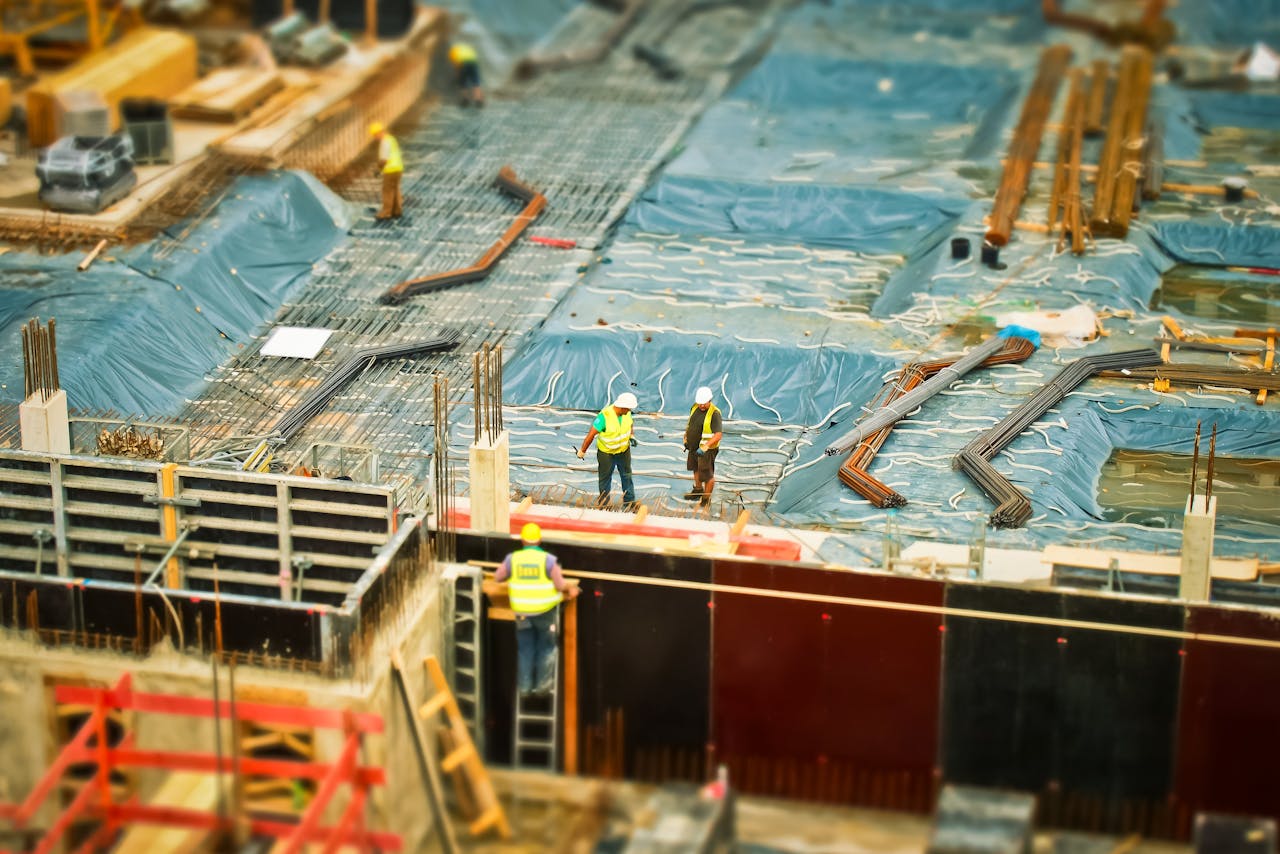
Across all industries construction firms take on some of the most difficult tasks. These initiatives frequently have high expenditures, strict timelines and numerous stakeholders. Construction firms depend on careful planning, knowledgeable workers and cutting-edge equipment to complete complicated projects successfully. This article explores how they oversee every phase guaranteeing seamless execution from beginning to end.
The Foundation of Project Management
A robust management system is the first step towards a building project’s success. Before work starts construction companies in Pakistan businesses have clear objectives, schedules and protocols. These components serve as a road map directing each choice made during the project. Even the most talented teams may have inefficiencies or setbacks without this basis.
Determining the goals and scope of the project is a crucial component of this system. Businesses can concentrate their efforts on meeting customer expectations by knowing the intended result. Additionally by streamlining procedures and cutting waste this clarity saves time and money.
Planning and Design Phase
The project’s overall mood is established during the planning phase. Construction firms develop timetables, workflows and designs during this stage. Together engineers architects and planners create structures that adhere to functional and safety requirements.
In order to make sure the project conforms with regional laws and environmental considerations they also evaluate the site. Planning well reduces the possibility of errors and delays during execution. In order to overcome unforeseen issues or incorporate new knowledge this phase is frequently redone.
Resource Allocation and Budgeting
One of the biggest problems in building is effectively allocating resources. To achieve deadlines without going over budget businesses must strike a balance between personnel equipment and supplies. A well-defined budget guarantees the project’s financial stability.
Advanced software is used by construction businesses to manage these resources. These technologies provide real-time inventory monitoring, cost forecasting and spending tracking. Allocating resources involves more than simply financial considerations; it also entails employing qualified personnel keeping up with equipment and making sure supplies are available when needed.
Risk Assessment and Management
There are hazards associated with every construction project from supply chain interruptions to weather delays. Before beginning a project businesses do in-depth risk assessments. These evaluations spot possible problems and create backup strategies to deal with them.
Continuous monitoring is another aspect of risk management. Businesses can swiftly adjust to shifting conditions by monitoring progress and spotting warning indications early. By taking a proactive stance downtime is reduced and the project’s timeline is maintained.
Technology’s Role in Complex Projects
In order to effectively manage construction projects modern technology is essential. Software is used by businesses for communication, data analysis and project management. Before building starts teams can view plans in three dimensions and spot possible issues with the help of tools like Building Information Modeling (BIM).
Site inspections and progress monitoring are two other common uses for drones and sensors. These technologies give businesses a competitive edge by increasing efficiency, safety and accuracy. These days managing the intricacy of large-scale building projects requires the use of digital tools.
Communication and Collaboration
Any construction project requires effective communication. When several teams are working on various projects, smooth collaboration makes sure that everything is in line. Communication channels are established by construction businesses to inform and involve stakeholders.
Frequent meetings, progress reports and daily updates all aid in avoiding miscommunications or delays. Digital platforms are frequently used by businesses for file sharing and real-time updates which facilitates coordination across locations. Effective communication promotes teamwork and increases trust.
Quality Assurance and Control
For construction firms upholding high standards of quality is crucial. Establishing standards and protocols to guarantee that every stage satisfies industry requirements is known as quality assurance. To confirm compliance testing and inspections are carried out at different phases.
Materials methods and craftsmanship are all monitored as part of quality control efforts. Employers also welcome employee input in order to pinpoint areas that need development. Construction firms guarantee customer pleasure and lessen the need for subsequent expensive repairs by concentrating on quality..
Execution and Monitoring
During the execution phase planning turns into action. To direct everyday activities construction businesses rely on comprehensive schedules and procedures. Project managers keep an eye on developments and guarantee that assignments are finished on schedule.
Monitoring tools keep tabs on expenses, productivity and security. To avoid more delays any deviations from the plan are promptly rectified. An efficient execution phase reduces downtime and maintains the project’s momentum.
Meeting Deadlines and Deliverables
In construction meeting deadlines is one of the most difficult tasks. Businesses anticipate delays and manage schedules with the use of sophisticated scheduling systems. Teams can monitor progress and maintain focus when they have clear milestones.
Deliverables must also fulfill the expectations of the client. Clients and construction businesses collaborate extensively to make sure the client’s vision is achieved. Frequent site visits and updates keep everyone on the same page which lowers the possibility of last-minute disagreements or modifications.
Sustainability and Environmental Considerations
The importance of sustainability in construction is growing. Businesses are reducing their environmental effect by implementing green practices. These include developing energy-efficient structures, recycling waste and utilizing environmentally friendly materials.
Planning and project implementation are also impacted by environmental rules. Businesses must try to reduce their carbon footprint while adhering to local regulations. Sustainable business methods improve a company’s reputation in addition to helping the environment.
Conclusion
Complex construction project management calls for a trifecta of technological know-how planning and experience. Every stage from the first concept to the last delivery requires meticulous planning and problem-solving. Strong communication risk management and quality assurance are essential for construction enterprises to overcome obstacles and satisfy customers.



Leave a Reply